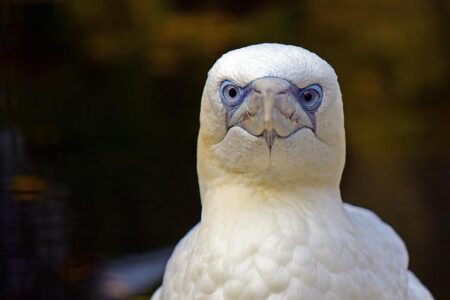Ivory Coast’s Governing Party Endorses Ouattara for Historic Fourth Term
In a decisive development that could redefine Ivory Coast’s political future, the country’s ruling party has formally nominated President Alassane Ouattara as its candidate for the forthcoming presidential election. This endorsement opens the door for Ouattara to seek an unprecedented fourth consecutive term. The announcement was made during a high-profile party assembly in Yamoussoukro, Ivory Coast’s political capital, amid ongoing discussions about leadership continuity and national stability following years of civil unrest. As the election approaches, this move not only impacts domestic politics but also serves as a critical indicator of democratic resilience in West Africa’s largest economy.
Ouattara Secures Ruling Party Backing Amid Rising Political Tensions
The ruling coalition has officially thrown its support behind President Alassane Ouattara’s bid for a fourth term at a time when Ivory Coast is grappling with increasing political divisions and social unrest. This decision follows months marked by protests and heightened tensions across various regions, raising alarms about potential instability as voters prepare to head to the polls. Advocates of Ouattara emphasize his role in fostering economic expansion and maintaining relative peace since his initial tenure began over a decade ago. Conversely, critics highlight concerns over authoritarian tendencies, suppression of dissenting voices, and diminishing democratic freedoms.
Public reaction to this endorsement has been polarized: enthusiastic rallies have demonstrated strong grassroots support from those who credit Ouattara with transformative governance; meanwhile, opposition groups are intensifying their efforts to counter what they perceive as an erosion of democratic norms through power consolidation. The upcoming elections are widely viewed as pivotal moments where citizens hope pressing challenges such as:
- Bridging Economic Disparities
- Tackling Youth Unemployment Rates Exceeding 30%
- Expanding Civil Liberties and Political Participation
will be addressed more effectively.
| Political Entity | Stance on Election |
|---|---|
| Ruling Party (RHDP) | Supports Ouattara’s Re-election Bid |
| Main Opposition Coalition (PDCI & Allies) | Aims to Contest Election Results |
Governance Challenges and Stability Concerns Surrounding Ouattara’s Fourth-Term Pursuit
President Ouattara’s intention to extend his leadership into a fourth term carries significant consequences for Ivory Coast’s governance framework and overall stability. His seasoned experience is often cited by supporters who argue it provides much-needed continuity amid regional volatility marked by coups and electoral disputes elsewhere in West Africa. Since emerging from civil conflict nearly two decades ago, Ivory Coast has enjoyed relative peace under his stewardship alongside steady GDP growth averaging around 7% annually before global disruptions.
However, opponents warn that prolonging one leader’s rule risks deepening societal fractures—especially given allegations that recent electoral reforms disproportionately favor incumbents while sidelining opposition voices. Such dynamics threaten social cohesion at a time when youth activism is rising sharply; according to recent UN data, nearly half of Ivorian citizens are under age 25—a demographic increasingly vocal about demands for transparency and inclusion.
International observers remain vigilant regarding how this election unfolds since outcomes will influence foreign relations significantly—particularly concerning foreign direct investment (FDI) inflows which reached $3 billion last year despite pandemic setbacks—and regional security cooperation initiatives within ECOWAS frameworks.
Key considerations include:
- The Opposition’s Capacity: Can fragmented opposition forces unite effectively or will internal divisions undermine their impact?
- Civic Engagement: How will public perceptions regarding electoral legitimacy shape voter turnout?
- Diplomatic Responses: Will international bodies endorse or challenge election results based on fairness assessments?
Understanding these factors is essential when assessing how extended leadership might influence Ivory Coast’s trajectory toward sustainable democracy or further polarization.
Voter Insights & Strategic Guidance for Opposition Ahead of Elections Â
Recent polling data reveals an electorate deeply divided over President Ouattara’s candidacy—with approximately 45% expressing approval contrasted against roughly 40% opposing him outright; the remainder remains undecided or indifferent. Supporters frequently cite improvements in infrastructure projects such as expanded road networks linking Abidjan with rural areas alongside macroeconomic stability achieved during his terms. Yet skepticism persists among many voters concerned about shrinking spaces for free expression and perceived government opacity on corruption issues.
For opposition parties aiming to capitalize on these sentiments ahead of voting day scheduled later this year (October), several strategic priorities emerge:
- Cultivating Grassroots Networks: Engage communities directly through localized campaigns addressing specific socioeconomic grievances.
- Pushing Governance Reforms: Present clear policy alternatives emphasizing accountability mechanisms.
- Diversifying Digital Outreach: Harness social media platforms popular among younger demographics—including TikTok trends—to amplify messages.
- Nurturing Inclusive Narratives: Build coalitions bridging ethnic divides while empowering marginalized groups like women entrepreneurs.
Looking Ahead: What Lies Beyond the Election Horizon?
The ruling party’s nomination of Alassane Ouattara signals an inflection point in Ivory Coast politics—one laden with both opportunity and risk amid ongoing economic pressures exacerbated by global inflationary trends reaching double digits locally last year (~12%). As he seeks re-election amidst calls demanding greater reform from civil society actors advocating transparency reforms—the outcome will reverberate well beyond national borders given Ivory Coast’s role as West Africa’s economic powerhouse producing roughly 40% of regional GDP.
Observers worldwide await closely how voter sentiment evolves alongside opposition maneuvers designed either to uphold democratic principles or contest perceived imbalances within electoral processes themselves. With elections imminent later this year—and stakes higher than ever—the nation stands at crossroads between consolidating gains made since post-conflict recovery or facing renewed cycles of division challenging long-term progress toward inclusive governance.
News Central TV remains committed to delivering timely updates on these unfolding events shaping not only Ivorians’ futures but also broader West African stability trajectories moving forward.







